Life
Sign up for our newsletter
We summarize the week's scientific breakthroughs every Thursday.
-
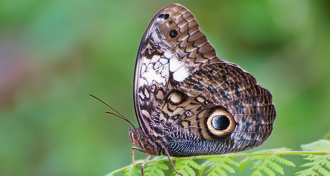 Life
LifeIt’s true: Butterfly spots can mimic scary eyes
Contrary to recent studies, the old notion that butterfly wing eyespots evoke predator eyes may not be so old-fashioned after all.
By Susan Milius -
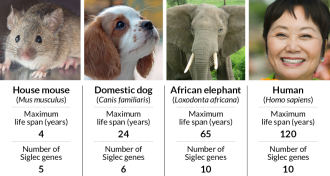 Genetics
GeneticsAnti-inflammation genes linked to longer lives
Inflammation-dampening genes fight oxidants and promote longer life spans.
-
 Health & Medicine
Health & MedicineMutation regions mapped on genes that cause breast and ovarian cancer
An analysis of mutated BRCA genes could someday be used for personalized medicine in the fight against breast and ovarian cancer.
By Nathan Seppa -
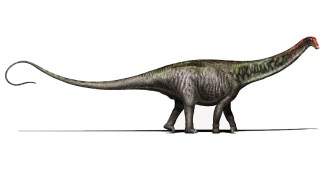 Paleontology
PaleontologyBrontosaurus deserves its name, after all
Brontosaurus belongs in a genus separate from Apatosaurus, a new study proposes.
-
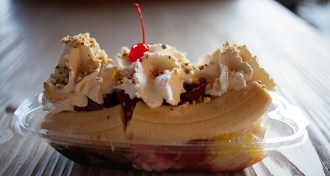 Neuroscience
NeuroscienceBrains may be wired to count calories, make healthy choices
Fruit flies appear to make memories of the calories in the food they eat, an observation that may have implications for weight control in humans.
-
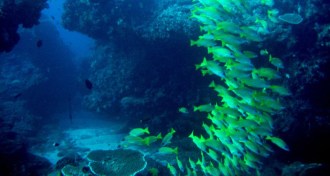 Animals
AnimalsDistinct voices fill the fish soundscape at night
Researchers find that fish sound frequencies overlap more during the day and are more distinct at night.
-
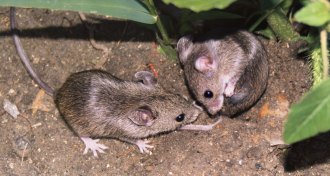 Animals
AnimalsMouse mates with similar personalities start families faster
Among monogamous mound-building mice, the more closely mates match in a tendency toward anxiety, the sooner they start having babies
By Susan Milius -
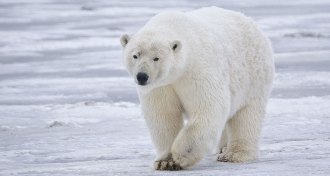 Animals
AnimalsEggs and other land foods won’t feed polar bears
Polar bears will not be able to survive on land by eating birds, eggs and vegetation, a new review concludes.
-
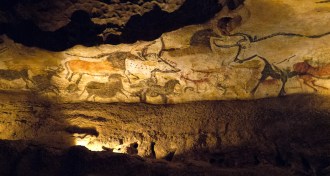 Animals
Animals‘Domesticated’ explores how humans have altered animals
Science journalist Richard Francis delves into the genetic changes humans have caused in dogs, cats, pigs, horses, camels and more.
-
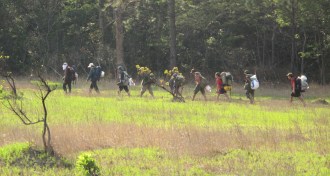 Animals
Animals‘The Last Unicorn’ takes readers on quest to see a saola
Nature writer William deBuys introduces readers to the enigmatic saola of Southeast Asia.
-
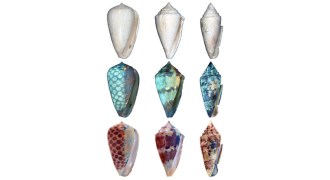 Oceans
OceansUV light reveals hidden patterns on seashell fossils
Under UV light, fossil seashell color patterns glow, a researcher finds.
-
 Environment
EnvironmentFive years on, Deepwater Horizon oil spill’s impact lingers
Five years after the Gulf of Mexico’s largest disaster, researchers are still studying its ecological impact and struggling to learn the fate of most of the spilled oil.
By Beth Mole